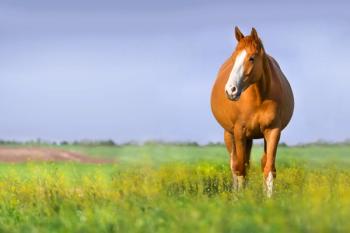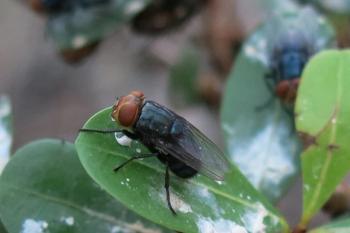
CDC posts cumulative WNV cases; Kentucky reports 14
In mid-September, the Centers for Disease Control and Prevention (CDC) report there have been 670 cumulative veterinary disease cases of West Nile virus (WNV).
NATIONAL REPORT — In mid-September, the Centers for Disease Control and Prevention (CDC) report there have been 670 cumulative veterinary disease cases of West Nile virus (WNV).
The numbers reflect WNV clinical cases found in non-human mammals (99.9 percent horses). However, few cases have been reported in dogs, bears and bats, CDC reports.
On the human side, 2,171 have been confirmed by CDC since the beginning of the year; 74 of which were fatal.
Kentucky's state veterinarian Robert Stout, DVM reports that 14 cases WNV have been confirmed in the state so far this year.
As of Sept. 20, infected horses were confirmed on 13 premises. Of those cases, 14 were not vaccinated, and eight of those horses were ultimately euthanized.
The horse cases were located in nine Kentucky counties:
- Adair (2),
- Ballard (1),
- Christian (1),
- Fulton (2)
- Hardin (2)
- Hickman (1)
- Lincoln (2)
- Nelson (2)
- Todd (1).
In New Jersey, Secretary of Agriculture Charles M. Kuperus says the death of a 6-year-old mare in Burlington County has been attributed to Eastern Equine Encephalitis (EEE), and the death of a 14-year-old mare in Middlesex County was caused by WNV.
These are the first two deaths to occur from these equine illnesses this year in the state.
Both horses were not vaccinated for the mosquito-borne infections they succumbed to.
The Middlesex County horse became ill on Sept. 6 and was euthanized on Sept. 7.
The Burlington County horse became ill on Sept. 8 and was euthanized on Sept. 9.
Kuperus says that even though state officials are seeing fewer cases each year, "owners still need to be diligent in vaccinating their animals.
"We strongly recommend that horse owners take preventive steps to protect their animals from the potentially deadly diseases of WNV and EEE," Kuperus says.
The state reported no cases of WNV in horses and four cases of EEE in 2005. That is compared with six cases each of West Nile virus and EEE in 2004.
West Nile fever results from infection by the WNV, a mosquito-borne arbovirus in the genus Flavivirus, family Flaviviridae. Two genetic lineages exist; viruses in lineage 1 but not lineage 2 have been definitely linked to human disease. The strain found in the United States may have originated in the Middle East. It appears to be related to a lineage 1 virus found in Israel from 1997 to 2000.
Newsletter
From exam room tips to practice management insights, get trusted veterinary news delivered straight to your inbox—subscribe to dvm360.





